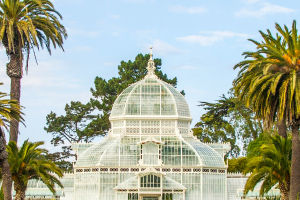Tokyo dazzles with neon-clad skyscrapers and centuries-old temples, tranquil gardens and vibrant nightlife.
This ultra-modern metropolis marries cutting-edge technology with time-honored tradition. Yet navigating its scale and customs can trip up even seasoned travelers. So, Lykkers, here's what every visitor must know before touchdown.
Health Essentials
Japanese pharmacies stock myriad over-the-counter medications, but packaging is rarely in English. Carry familiar prescription drugs—in quantities under a one-month supply—to avoid confusion. Note: stimulants like Adderall are prohibited. Check the U.S. Embassy's list for a full rundown. Don't forget travel insurance covering Tokyo's world-class hospitals; a half-day hospital visit can cost ¥10,000–¥20,000 without coverage.
Must-Have Apps
Navigating Tokyo's vast rail network is simplest with the Japan Travel by Navitime app—fare estimates and route options appear in yen and minutes. The Tokyo Subway Ticket (24-hour for ¥800; 72-hour for ¥1,500) offers unlimited rides on both Metro and Toei lines. For safety updates on earthquakes and typhoons, install the Safety Tips app and set alerts. A reliable translation app such as DeepL ensures smooth conversations; pairing with a ¥5,000 pocket Wi-Fi rental keeps you online.
Ideal Itinerary
A week in Tokyo balances deep dives and day trips. Spend three days exploring Shibuya (Hachiko exit, meet at 10 AM to avoid crowds), Asakusa (Senso-ji Temple free entry, 09:00–17:00), and Tsukiji Outer Market (breakfast sushi from ¥1,200). Reserve two-day passes for side trips: Kamakura (rail fare 920 yen, 60 min) to see the Great Buddha (¥300 entry) and Mt. Takao (cable car 490 yen each way, 50 min) for short hiking. Allocate one day for spontaneous discoveries: book a sushi-making class (¥6,000, 3 hours) or visit teamLab Borderless (¥3,200, reservation required).
Smart Budgeting
Tokyo can be affordable with thoughtful planning. A bowl of ramen typically costs ¥800–¥1,200, while midrange teishoku (set meal) runs ¥1,000–¥1,500. Convenience store onigiri are just ¥120 each. For lodging, business hotels start at ¥6,000 per night; capsule hotels run ¥3,000–¥4,000. Taxis levy a ¥410 base fare plus ¥80 per 280 m—expect ¥3,000 from Haneda to central Tokyo.
Dress Sensibly
Tokyo's fashion scene spans avant-garde in Harajuku to conservative office wear. In summer, lightweight cotton outfits fend off 35 °C heat and 70 % humidity. Pack a compact umbrella for the June–July rains—rain jackets can trap heat. For upscale dining and theater at Kabuki-za, smart casual attire is expected; bring a blazer or collared shirt. Always remove shoes when entering homes and some traditional restaurants; slip-on shoes are ideal.
Natural Hazards
Tokyo feels minor tremors nearly daily. Buildings erected after 1982 adhere to strict earthquake-resistant standards, but keep calm and follow exit signs. Emergency kits with a flashlight, portable charger, and three days' water and snacks are recommended—kits start at ¥3,000 in outdoor shops. Between May and October, typhoons can disrupt the Yamanote Line and Narita Express: expect delays of 2–4 hours or cancellations. Monitor NHK World broadcasts or the Safety Tips app for live updates.
Conclusion
Armed with the right apps, health supplies, and cultural know-how, Tokyo transforms from daunting to delightful. Embrace the city's contrasts—steel and serenity, tradition and tech—and unlock a journey that's as practical as it is poetic. Safe travels!


